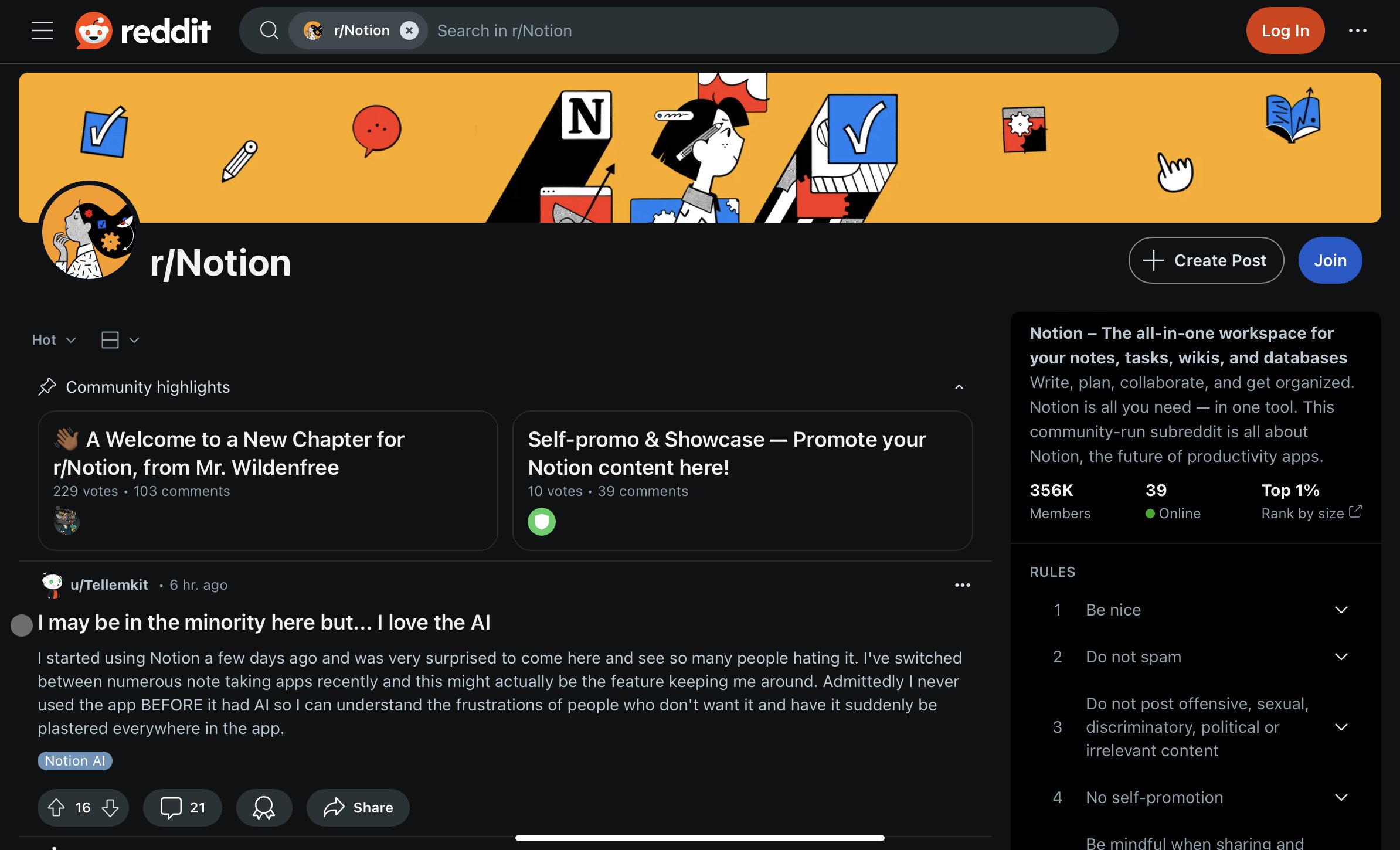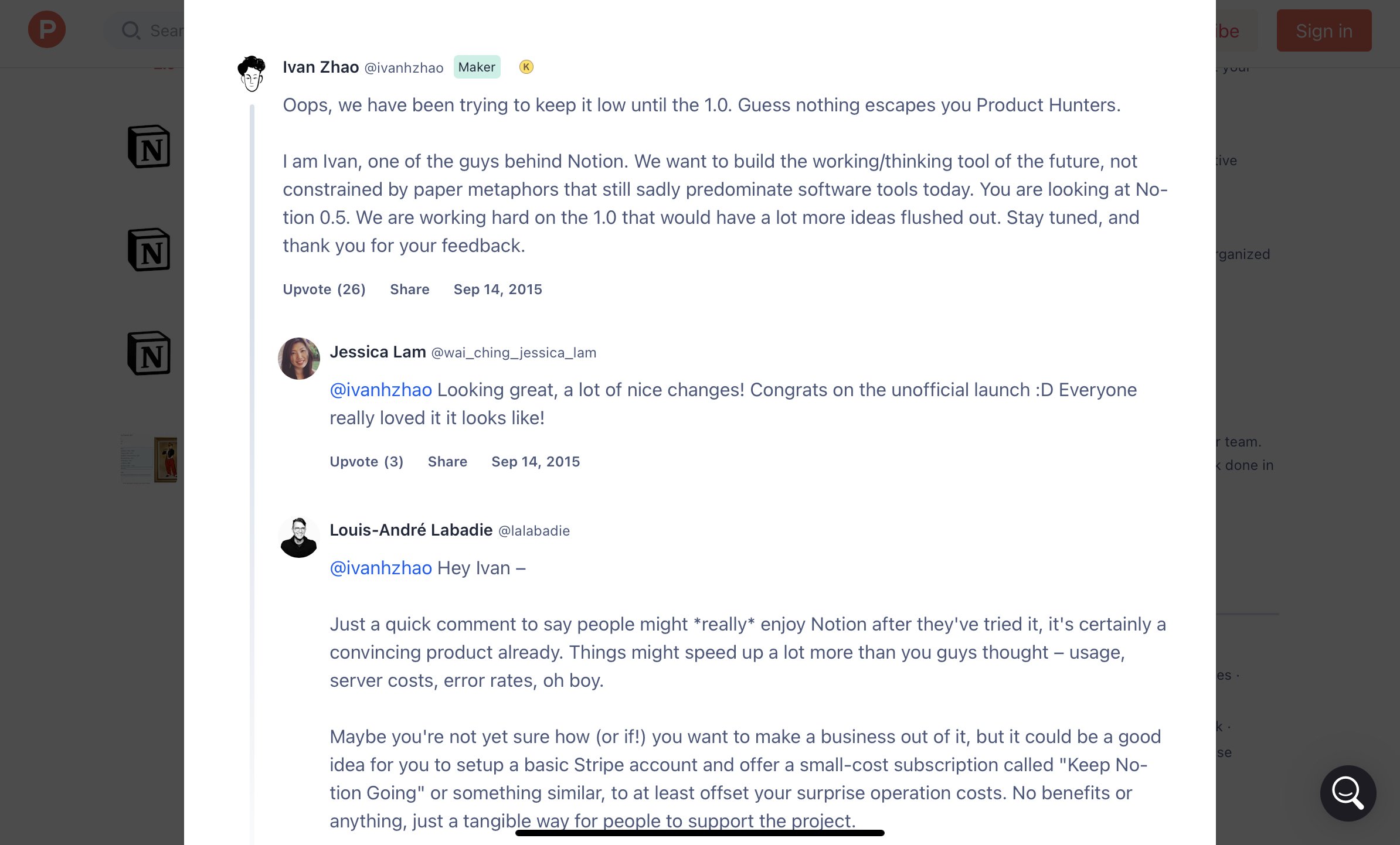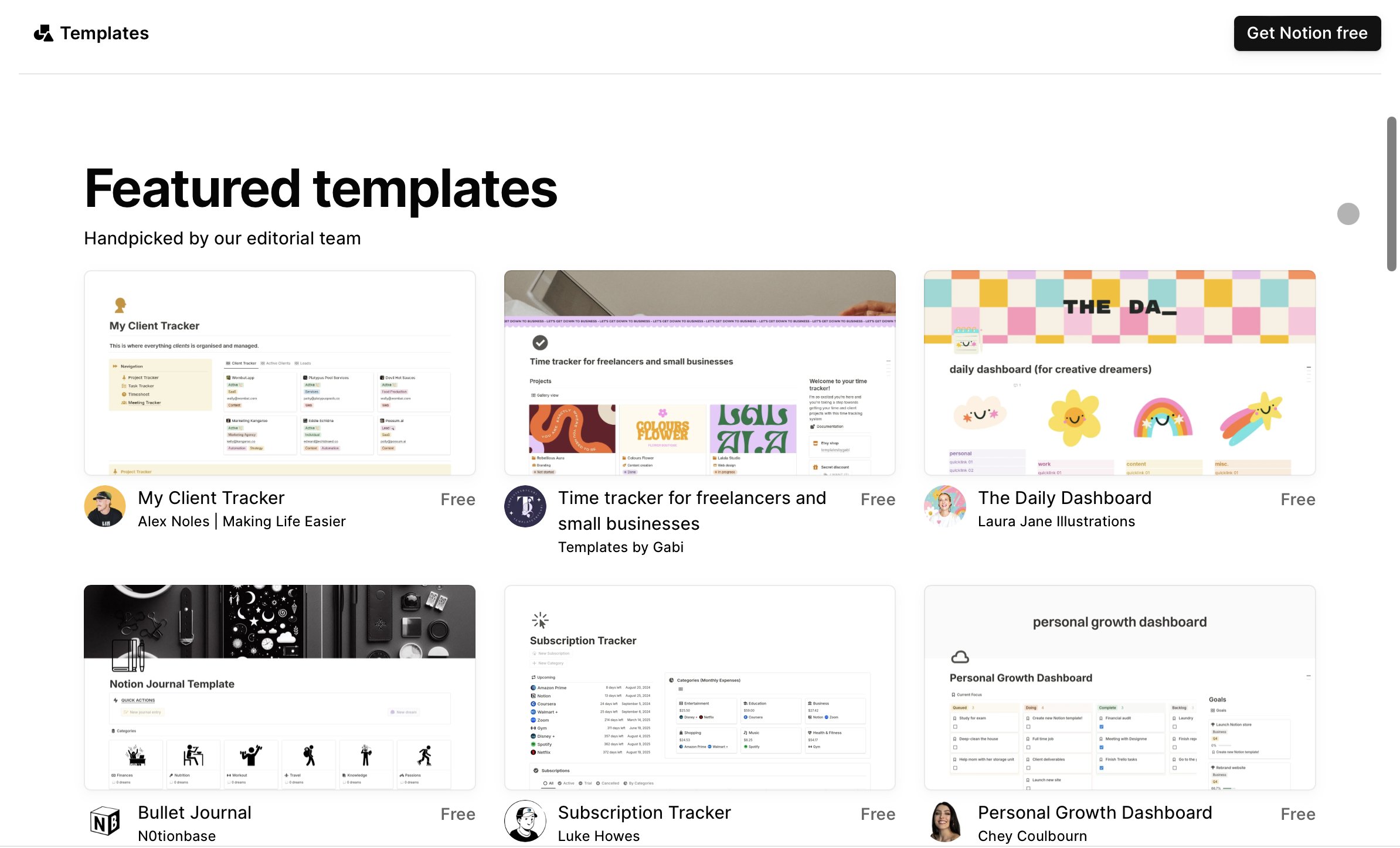5 Strategies that took Notion to $10B
Hiya 👋
How is the end of the summer treating you? I don’t know about you but I’m SO ready for a pumpkin space late season. No more heat, please.
I’ve been travelling A LOT this summer so writing this issue wasn’t an easy task but I’m finally sending it out, yay!
You see how I write this newsletter my hotel in Brooklyn over the summer holiday? Very demure, very workaholic, very cutesy ✨
🥕 5-second insights 🥕
Short on time? Here are the key takeaways from Liquid Death’s growth strategies 👇
Decentralized Community: Organic, global growth without centralised platform
Product Hunt launches: Early traction and initial community building
B2C2B funnel: Keeping virality of B2C but enjoying stability of B2B
Templates: SEO-driven acquisition, onboarding, and community building
Influencer Marketing: A viral growth engine for customer acquisition
In this newsletter we’ll be looking at Notion growth strategies. It’s really close to my heart as I love to use Notion as my personal productivity tool. From personal goal setting, todo lists, journaling to writing this newsletter 😌
Notion’s growth is especially interesting because of its decentralised community and very well executed influencer startegy. After the latest investment in 2021 Notion is valued at 10$B!
But Rome wasn’t built in a day, and neither was Notion. It took them four years to launch their first public version after a year-long beta, with a pivot along the way.
What started as a simple website builder evolved into the Notion we know today. The founders even relocated from San Francisco to Kyoto to focus on the Notion rewrite. And after the launch in 2016 things finally started taking off!
Let’s have a look at 5 strategies they used to grow 👇
1️⃣ Decentralized Community
Notion’s community is what every B2B brand dreams about. It’s incredibly engaged, it has over 350k members on Reddit alone. And the best bit? It grew organically without any initial push from Notion itself. Groups just started popping up spontaneously on Reddit, Facebook, Slack, and other platforms.
Once Notion realized they started providing support and resources to individual groups but made a decision to keep community decentralized early on and try not to force community under a single platform.
The decentralized nature of these communities allows members join and engage on platforms they find most authentic - whether it’s Slack for corporate users, Discord for students, or Reddit for freelancers. Community adapts to its members not the other way around.
But as you can guess tracking and reporting value across all these platforms isn’t easy. Still, Notion’s leadership knows it helps in the long run, community opens a massive top funnel for their PLG strategy.
📚Extra resource: If you would like a deeper dive into Notion’s community and how it works here is a perfect resource 👉 Community Inc. breakdown.
Why it’s great:
Reaches platform-specific audiences
Increases community engagement
Helps product discoverability
Notion’s subreddit has over 350k members.
2️⃣ Early adopters from Product Hunt
In 2015, before they officially launched, Notion was accidentally “hunted” on Product Hunt, placing third for Product of the Day although it was still only beta. Listing got a lot of good feedback and hunters started signing up.
By the time they were ready to go live a year later they already had a active fanbase on Product Hunt. Notion 1.0 launchled to a spike in signups, with over 6,500 upvotes which helped them score not only Product of the Day, and Week, but also even winning a Golden Kitty Award!
The team quickly realized the value of Product Hunt community for product discoverability and kept on creating new launches for major product releases over the years.
This approach is super handy when you know your community hangs out on PH. You want to keep them up to date with your product and well performing listings also help attract new leads to the top of your funnel.
Why it’s great:
Early exposure and traction
Early feedback
Community building
First unofficial Notion’s Product Hunt listing got a lot of great feedback and interest.
3️⃣ B2C2B: Balancing PLG and Sales
Notion’s growth is driven by a perfect balance between PLG and sales with majority of its revenue is coming from B2B customers.
The growth loop starts with personal use. Someone uses Notion for a personal project, then introduces it to their workplace. Once more teams start using Notion, the sales steps in to offer support, consolidation, and upsell opportunities.
It’s every sales team dream, highly qualified leads are steadily entering their funnel which makes it much easier to engage and convert them into paying customers.
It’s a great compromise - Notion combines the virality of B2C with the stability of B2B.
Why it’s great:
Only product-qualified leads enter the sales pipeline
Keeps sales team efficient
Maximizes both user acquisition and revenue growth
4️⃣ Templates for Everything
To boost discoverability, Notion launched a Template library that drives significant portion of their monthly organic traffic.
Templates are pre-build pages for various use cases, from personal goal setting to company wikis. But SEO isn’t the only advantage, templates help users reach value of the product faster, improving onboarding and activation.
But Notion took Templates even further with their community-driven mindset. They allow users to submit and sell their own templates. This creates unlimited pool of user-generated content that they’re encouraged to promote and sell. Top creators have made over $10,000 a month by selling their templates!
Why it’s great:
Boosts SEO with high-ranking content
Encourages user-generated content
Improves user activation and retention
Notions templates strategy is to offer template for every possible use case with many different variation to show you how you can use it and customize.
5️⃣ Influencer Marketing
In 2021 “How I use Notion” videos went so viral on TikTok that it led to performance issues and app outages. Demand was so high that the old infrastructure couldn’t take it anymore. Sounds like a nightmare if you’ve been through few production incidents yourself but from a growth perspective these very really good news. Product was growing. Super fast.
Notion started with influencer marketing very early on. By partnering with creators in the productivity space they achieved massive viral growth. Notion’s influencer strategy became a key growth tactic, driving evergreen signups at a low acquisition cost.
The trick was to work with influencers who already loved the product so content feels more genuine and authentic. And, of course, influencers will be more likely to agree on partnership.
📚 Extra resource: To get a behind the scenes of how influencer marketing works at Notion have a look at Ben Lang’s article.
Why it’s great:
Builds credibility and trust
Expands reach
Brand awareness
TikTok is flooded with “how I use Notion” videos that drive significant interest and traffic.
That’s it for this week’s breakdown!
Notion shows us that with the right mix of community, product-led growth, and smart marketing, you can go from near-zero to the dreamy unicorn status.
And that’s it for Notion strategies breakdown. What company should I explore next? Let me know!






